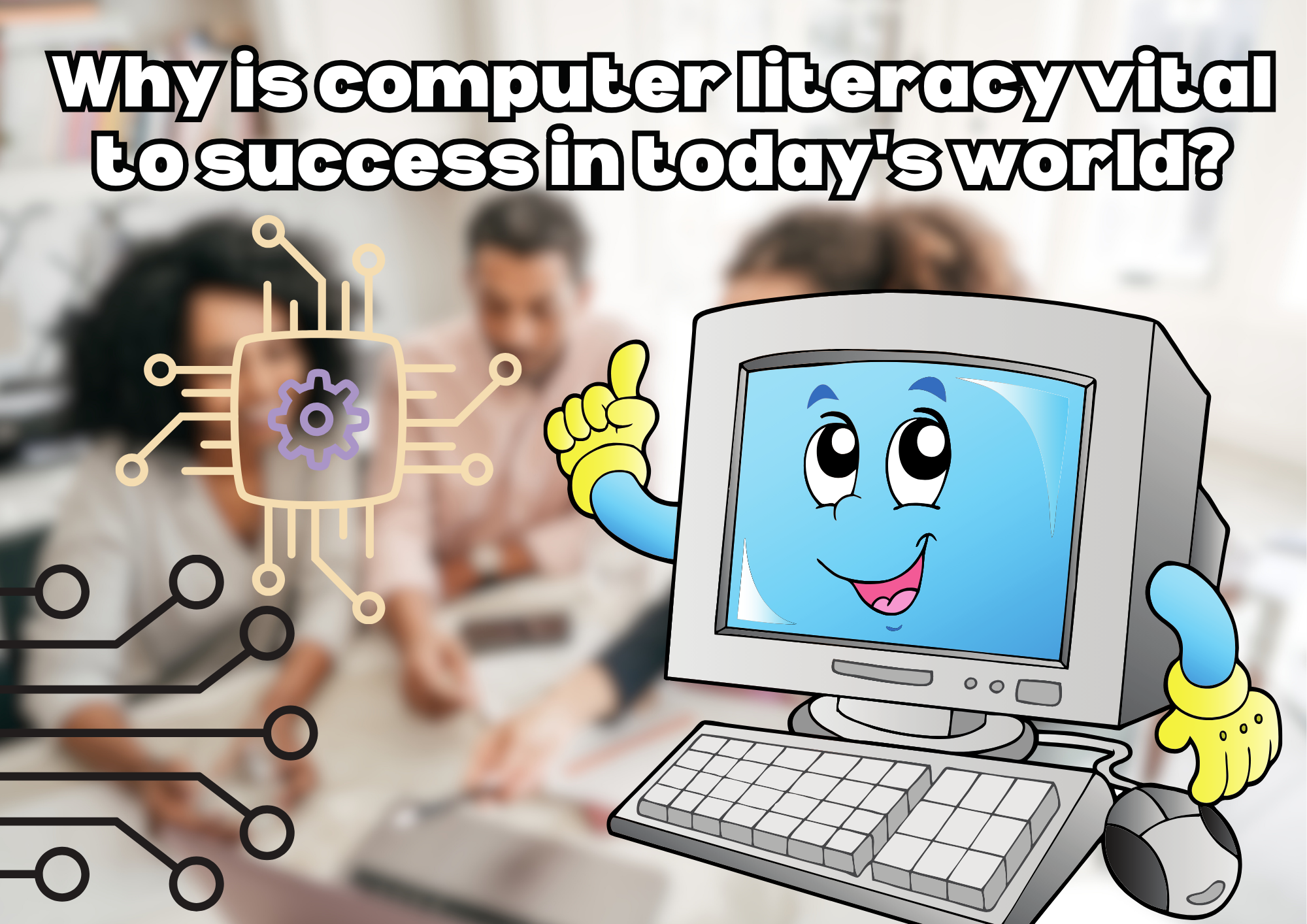In an era where technology permeates every aspect of our lives, from communication to banking, learning to shopping, the importance of being proficient with computers cannot be overstated. It, defined as the ability to use computers and technology efficiently, has become a fundamental requirement for success in today’s world. This article explores the multifaceted role of computer literacy in professional success, personal development, and the broader economic landscape.
The Role of Computer Literacy in Professional Success

The job market of the 21st century is increasingly dominated by roles that require some form of digital competency. From basic tasks like sending emails and managing digital files to more complex operations involving software specific to industries, computer skills are non-negotiable. Employers not only prefer but often expect candidates to have a solid foundation in the literacy of computers. This trend underscores the reality that, regardless of the field, technology skills are integral to workplace success and career advancement.
Computer Literacy as a Foundation for Lifelong Learning
Beyond the workplace, computer literacy serves as a cornerstone for lifelong learning. The internet offers an unprecedented wealth of knowledge and learning opportunities that are accessible to those proficient in navigating it. Whether it’s acquiring a new skill through an online course, staying informed about global events, or even learning a new language, the literacy of computers opens doors to endless possibilities for personal growth and education.
The Impact of Computer Literacy on Personal Development and Empowerment

Mastering computer skills does more than enhance one’s resume; it also boosts personal efficiency and empowerment. With the knowledge of how to utilize technology tools, individuals can streamline daily tasks, access information quickly, and communicate more effectively. This empowerment extends beyond personal convenience, fostering a sense of independence and confidence in navigating the digital landscape.
Global Perspective: Computer Literacy and Economic Development
On a macro level, the importance of in the literacy of computers extends to economic development and competitiveness. Countries with higher rates of this is among their population are better positioned to participate in the global economy, attract investment, and foster innovation. Initiatives aimed at improving computer literacy can have a profound impact on a nation’s economic health and its citizens’ quality of life.
Challenges and Solutions in Achieving Computer Literacy

Despite its importance, achieving widespread literacy in computers faces numerous challenges, including access to technology, quality of education, and resistance to change. Overcoming these obstacles requires concerted efforts from governments, educational institutions, and communities to implement effective programs and policies that promote digital inclusion and literacy.
Conclusion
As we move further into the digital age, the value of computer literacy only grows. It is a critical skill for professional success, a gateway to lifelong learning, and a catalyst for personal empowerment. Moreover, it plays a crucial role in the economic development of nations. By prioritizing the literacy of computers, individuals and societies can unlock the full potential of the digital era. The future will undoubtedly bring new technological advancements and, with them, an evolving definition of what it means to be computer literate. Embracing this challenge is not just beneficial but essential for success in the modern world.
FREQUENTLY ASKED QUESTIONS
Q1. What is computer literacy?
Ans: Computer literacy refers to the ability to use computers and technology efficiently, including knowledge of basic software, hardware, and the internet.
Q2. Why is computer literacy important?
Ans: It is vital for success in education, career, and daily life, helping individuals access information, communicate effectively, and solve problems using technology.
Q3. How does computer literacy help in education?
Ans: It enhances learning by providing access to online resources, research tools, and interactive platforms, making education more engaging and accessible.
Q4. Can computer literacy improve career prospects?
Ans: Yes, computer literacy is essential in almost all industries, improving job opportunities and making individuals more competitive in the workforce.
Q5. What skills are included in computer literacy?
Ans: It includes skills like using operating systems, office software (e.g., Word, Excel), browsing the internet, understanding cybersecurity, and using digital communication tools.









